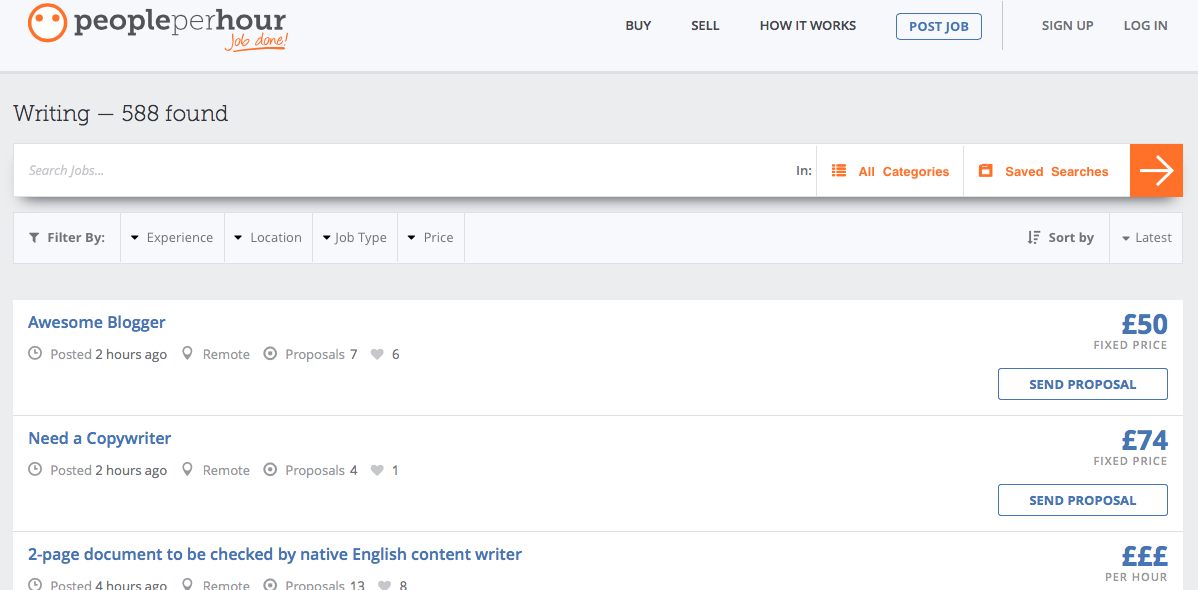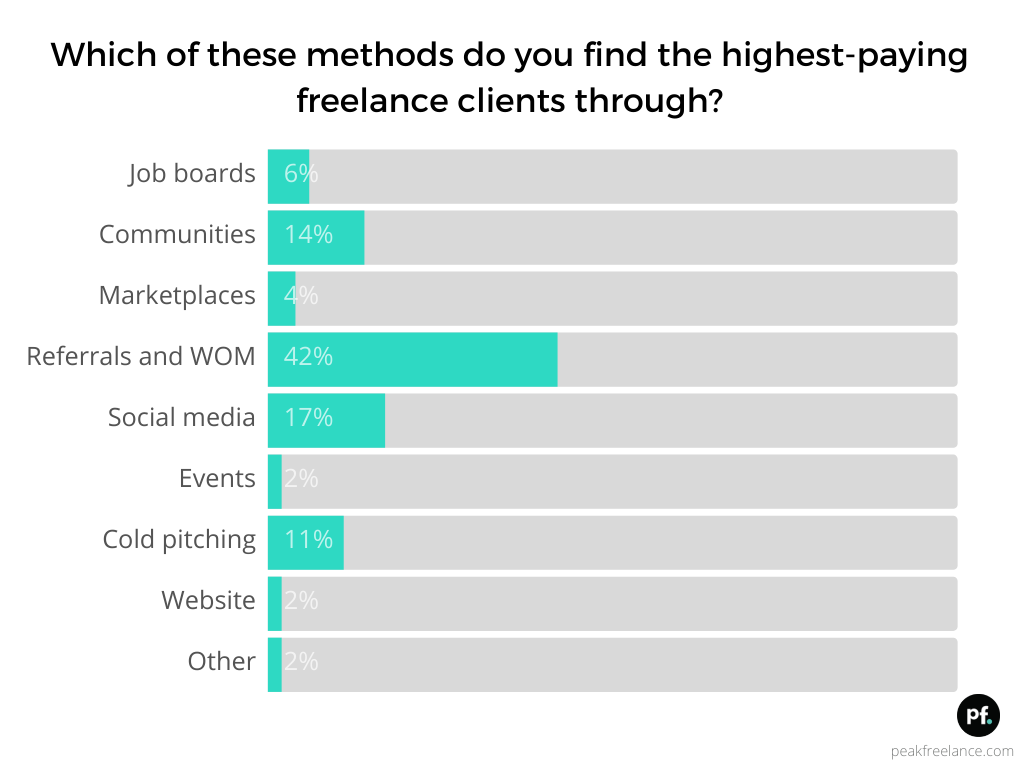Unlocking the potential of freelance work often hinges on leveraging the right platforms. This comprehensive guide delves into the strategies for effectively utilizing job boards to discover high-quality freelance opportunities. From understanding different types of boards to crafting compelling proposals, we’ll equip you with the knowledge and tools to navigate the freelance marketplace successfully.
This guide will walk you through the crucial steps for finding freelance work on various job boards. We’ll explore the nuances of effective searching, profile optimization, proposal writing, networking, and staying updated on industry trends. By mastering these key elements, you’ll significantly enhance your chances of securing desirable freelance projects.
Understanding Freelance Job Boards

Freelance job boards are vital resources for independent professionals seeking opportunities. They connect freelancers with potential clients, enabling a streamlined process for finding and securing suitable projects. Understanding the various types of boards and their unique characteristics is crucial for maximizing their effectiveness. Different boards cater to diverse needs and specializations, ensuring that freelancers can find platforms tailored to their specific expertise and aspirations.Different freelance job boards cater to various niches and levels of specialization.
Some are general platforms accepting a broad range of projects, while others focus on specific industries or skill sets. This tailored approach allows freelancers to find opportunities that align with their expertise, thereby improving the efficiency and effectiveness of the job search process.
Types of Freelance Job Boards
Understanding the diverse landscape of freelance job boards is essential for navigating the market effectively. General freelance platforms provide a wide array of opportunities across numerous industries. Conversely, specialized platforms concentrate on specific fields like graphic design, writing, or web development, ensuring a more focused and relevant pool of projects.
Examples of Popular Freelance Job Boards
Numerous platforms cater to various freelance needs. For graphic design, platforms like 99designs and Dribbble often feature visual-heavy projects. For writing, platforms such as Upwork and ProBlogger offer opportunities spanning various niches, from blog posts to articles. Web development jobs are frequently posted on platforms like Freelancer.com and Guru. These platforms serve as valuable resources for finding projects and connecting with clients.
Key Features and Benefits of Using Each Type of Job Board
General job boards offer broad exposure to various projects, providing a wider range of potential opportunities. Specialized boards, however, provide a more targeted approach, focusing on a specific field, skill set, or industry, which leads to a higher probability of finding projects that precisely match the freelancer’s expertise. This targeted approach improves efficiency and effectiveness.
Comparison of Freelance Job Boards
| Job Board | Strengths | Weaknesses |
|---|---|---|
| General Platforms (e.g., Upwork) | Wide range of projects, broader exposure to potential clients, greater visibility. | Potential for less relevant projects, increased competition, higher volume of less lucrative projects. |
| Industry-Specific Platforms (e.g., 99designs for graphic design) | More focused projects matching specific skills, increased likelihood of relevant projects, stronger community within the niche. | Limited exposure compared to general platforms, fewer potential clients, potential for a narrower pool of projects. |
The table above highlights the comparative advantages and disadvantages of different types of freelance job boards. Careful consideration of these factors can help freelancers select the most appropriate platform for their needs.
Effective Searching Strategies

Finding freelance work on job boards requires strategic searching. Effective use of s and filters allows you to target your search to find projects that align with your skills, experience, and location. This approach increases your chances of securing high-quality freelance work that is a good fit for you.
Crafting Effective Search Terms
Careful selection of search terms is critical for achieving relevant results. Avoid overly broad terms that return a large volume of irrelevant postings. Instead, use specific and descriptive s that accurately reflect your skills and the type of work you’re seeking. For instance, instead of “writing,” use “technical writing,” “content marketing copywriting,” or ” blog post writing” to narrow your search.
Consider using synonyms and related terms to broaden your search while still maintaining focus.
Refining Search Results by Criteria
Job boards offer numerous options for refining your search. Skill level, experience, location, and project type are essential filters for finding suitable opportunities. By specifying these parameters, you can greatly reduce the number of irrelevant results and increase the likelihood of finding projects that match your profile. Start by specifying the required skill level (e.g., beginner, intermediate, expert), relevant experience (e.g., 1 year, 5 years, or specific experience types), desired location (e.g., a city, state, or country), and preferred project type (e.g., short-term, long-term, or specific project categories).
Leveraging Advanced Search Operators and Filters
Many job boards offer advanced search operators and filters to enhance your search effectiveness. These tools allow you to combine s, exclude certain terms, and specify precise criteria. For example, you can use Boolean operators like AND, OR, and NOT to refine your search. Some platforms also provide filters for project budget, deadline, or specific industry s.
Utilize these tools to create highly targeted searches.
Example Search Queries for Freelance Roles
| Freelance Role | Effective Search Query |
|---|---|
| Web Designer (Intermediate Level, Remote, UI/UX) | “Web Designer” AND “UI/UX” AND “Remote” AND “Intermediate” |
| Social Media Manager (Experienced, Content Creation, UK) | “Social Media Manager” AND “Content Creation” AND “Experienced” AND “UK” |
| Technical Writer (Software Documentation, US, 2+ Years Experience) | “Technical Writer” AND “Software Documentation” AND “US” AND “Experience > 2 years” |
| Copywriter (, Long-Term Projects, New York) | “Copywriter” AND “” AND “Long-Term” AND “New York” |
| Graphic Designer (Logo Design, 5+ Years, Freelancing, Los Angeles) | “Graphic Designer” AND “Logo Design” AND “Experience > 5 years” AND “Freelancing” AND “Los Angeles” |
Crafting Compelling Proposals

A strong proposal is crucial for securing freelance work. It’s your opportunity to showcase your skills, understand the client’s needs, and position yourself as the ideal candidate. A well-crafted proposal demonstrates professionalism, attention to detail, and a clear understanding of the project scope.A compelling proposal distinguishes you from other applicants and significantly increases your chances of winning the project.
It’s not just a document; it’s a persuasive sales pitch that highlights your value proposition and addresses the client’s specific requirements.
Effective Proposal Structure
Proposals should be structured logically, allowing clients to easily understand your approach and value proposition. A well-organized proposal will guide the client through the project’s key aspects, from the initial problem statement to the final deliverables. Clarity and conciseness are paramount.
Demonstrating Understanding of Client Needs
To create a compelling proposal, thoroughly research the client and their project. Analyze their specific needs and objectives, and tailor your proposal to directly address these needs. Consider the client’s past projects and online presence to understand their work style and expectations. Actively seeking out details about their specific project goals and challenges demonstrates a proactive and understanding approach.
Project Deliverables, Timelines, and Pricing
Clearly outlining project deliverables is essential. Use specific, measurable, achievable, relevant, and time-bound (SMART) goals to ensure both parties understand expectations. Provide detailed timelines with milestones, enabling clients to track progress. Develop a transparent pricing structure, breaking down costs for different tasks or phases, ensuring your fees are competitive and justified by the scope of work. This will create trust and transparency, which is essential for long-term client relationships.
A clear breakdown of your hourly rate, project-based fee, or other pricing models will also help avoid misunderstandings.
Highlighting Relevant Skills and Experience
Showcase your relevant skills and experience through a well-organized portfolio or project examples. Include quantifiable results whenever possible to demonstrate your past achievements. Highlight accomplishments that directly relate to the client’s project requirements. Demonstrating a strong understanding of the client’s industry or niche can significantly improve the impression you make.
Step-by-Step Proposal Creation Process
This table Artikels a practical process for creating effective proposals:
| Step | Action | Description |
|---|---|---|
| 1 | Research and Analysis | Thoroughly research the client and their project requirements. Identify their specific needs and pain points. |
| 2 | Proposal Artikel | Create a detailed Artikel that addresses the project’s scope, deliverables, timeline, and pricing. |
| 3 | Deliverable Definition | Clearly define the specific deliverables, outlining what will be produced and when. |
| 4 | Timeline and Milestones | Establish a detailed timeline with key milestones to track project progress. |
| 5 | Pricing Structure | Develop a transparent pricing structure that aligns with the scope of work and project deliverables. |
| 6 | Skill Demonstration | Highlight your relevant skills and experience, demonstrating your understanding of the project and its requirements. |
| 7 | Review and Proofread | Thoroughly review and proofread the proposal for any errors in grammar, spelling, or formatting. |
| 8 | Submission | Submit the proposal through the designated channels, ensuring it meets any specific submission guidelines. |
Networking and Engagement

Building relationships with other freelancers and potential clients is crucial for long-term success on freelance job boards. Effective networking fosters a supportive community and opens doors to opportunities that might not be readily apparent through simple job postings. Engaging with potential clients and employers demonstrates your proactive approach and builds trust, which is essential for securing freelance work.
Importance of Networking
Networking with other freelancers provides valuable insights into industry trends, best practices, and potential collaborations. It allows you to share experiences, learn from each other’s successes and challenges, and gain a wider perspective on the freelance landscape. Likewise, connecting with potential clients and employers demonstrates your proactive approach and builds trust, vital components for securing freelance work. A strong network can lead to referrals, joint projects, and ongoing work opportunities.
Strategies for Engaging with Potential Clients and Employers
Engaging with potential clients and employers on job boards requires a proactive and professional approach. This involves more than simply applying for jobs; it includes actively participating in discussions, sharing your expertise, and demonstrating genuine interest in the needs of potential clients. This builds rapport and increases the likelihood of securing a project.
Participating in Relevant Forums and Communities
Active participation in relevant online forums and communities is a valuable way to network and engage with potential clients. Join discussions, offer insightful perspectives, and share your experiences to demonstrate your expertise and build credibility. This helps establish you as a knowledgeable and valuable resource within the community.
Effective Communication Strategies
Clear and concise communication is essential for building relationships on freelance job boards. Tailor your messages to the specific needs and interests of each client or employer. Highlight your relevant skills and experience, and demonstrate a genuine understanding of their requirements. Avoid generic messages and focus on personalized interactions to showcase your value proposition.
Following Up on Job Postings and Inquiries
Following up on job postings and inquiries demonstrates your interest and professionalism. Send personalized messages that reiterate your interest and provide further context about your experience or skills that directly address the client’s needs. Follow up after a reasonable timeframe (e.g., a week or two) with a brief update or additional relevant information.
Sample Messages for Interacting with Potential Clients
| Situation | Message Example |
|---|---|
| Responding to a job posting | “Subject: My Proposal for [Project Name] Dear [Client Name], I’ve carefully reviewed your project description for [Project Name] and am very interested in contributing my skills to this endeavor. My experience in [relevant area] aligns perfectly with the requirements you’ve Artikeld, particularly in [specific skill]. I’ve attached my portfolio for your review, which further demonstrates my capabilities.” |
| Responding to an inquiry about your services | “Subject: Re: Your Inquiry Regarding [Service] Dear [Client Name], Thank you for your inquiry about [service]. I’m pleased to offer my expertise in [relevant area] to support your needs. I’ve successfully completed similar projects in the past, focusing on [specific achievement]. My approach involves [brief description of methodology]. I’ve attached my portfolio for your review, and would be happy to discuss your project further.” |
| Following up after initial contact | “Subject: Following Up on [Project Name] Dear [Client Name], I hope this email finds you well. I’m following up on our previous conversation regarding [project name]. I’ve further researched your specific needs and believe my experience in [relevant area] could be particularly valuable. I’m available for a quick call next week to discuss this further.” |
Staying Updated and Adapting
Staying current in the freelance market is crucial for success. Constant evolution in technology, client preferences, and even the very nature of freelance platforms requires ongoing adaptation. Understanding these shifts allows freelancers to position themselves effectively, securing more projects and maximizing earnings potential.The freelance landscape is dynamic. What works today might be outdated tomorrow. Adaptability and a proactive approach to learning are key to thriving in this ever-changing environment.
This involves staying informed about emerging trends, adapting to platform updates, and continually honing your skills.
Importance of Industry Trends and Changes
Staying informed about industry trends and changes in freelance job markets is essential for freelancers to remain competitive and secure high-quality work. The freelance market is constantly evolving, with new technologies, platforms, and client expectations emerging regularly. Understanding these shifts allows freelancers to adapt their strategies, services, and proposals to meet the current demands and expectations of potential clients.
Resources for Learning New Opportunities and Trends
Several resources offer valuable insights into new opportunities and trends in the freelance market. Following industry blogs, attending webinars, and participating in online forums dedicated to freelancing are excellent methods for staying current. Furthermore, joining relevant online communities and networking with other freelancers can provide firsthand accounts of current trends and challenges. Subscription-based newsletters dedicated to the freelance industry also often deliver valuable insights into emerging opportunities and best practices.
Adapting to Changes in Job Board Features and User Behavior
Job board features and user behavior are constantly evolving. Understanding these shifts is vital for freelancers to optimize their profiles and search strategies. Keeping up with changes in platform algorithms and search functionality helps ensure that your profile and proposals are effectively visible to potential clients. Monitoring how user preferences change regarding project descriptions and skill requirements allows freelancers to tailor their approaches accordingly.
For instance, if a job board begins emphasizing specific skills or technologies, a freelancer might adjust their profile and proposals to highlight those skills.
Strategies for Adapting to Changes in Job Board Features and User Behavior
Regularly reviewing job board updates and announcements is a key strategy. Actively participating in the platform’s community forums, or relevant online discussions, can provide valuable insights into the latest trends and how users interact with the platform. Paying attention to client feedback and testimonials is another crucial aspect. This can provide a real-time view of what clients are looking for and how freelancers are performing on the platform.
Continuous Learning and Skill Development
Continuous learning and skill development are fundamental to success in the freelance market. Staying abreast of new technologies, software, and industry best practices is critical for delivering high-quality work. Freelancers should actively seek opportunities to enhance their skills, whether through online courses, workshops, or practical projects. For example, learning a new software program or sharpening existing skills can enhance a freelancer’s profile and broaden their appeal to potential clients.
Process for Staying Updated on Freelance Job Board Best Practices
A structured process for staying updated on freelance job board best practices involves several key steps. Firstly, regularly check job board websites and newsletters for updates on features, policies, and algorithm changes. Secondly, monitor industry blogs and news sources for relevant articles and insights. Thirdly, actively participate in online communities and forums focused on freelancing to gather insights from other professionals.
This multifaceted approach allows freelancers to stay ahead of the curve and adapt effectively to changing market conditions.
Last Recap
In conclusion, this guide has provided a thorough overview of navigating the freelance job market through online platforms. By understanding job board types, refining search strategies, optimizing your profile, crafting compelling proposals, networking effectively, and staying informed, you can significantly increase your chances of finding quality freelance work. Remember, consistent effort and adaptation to market changes are key to success in this dynamic field.